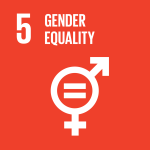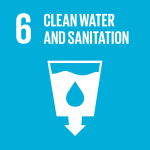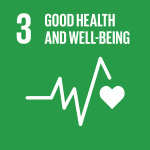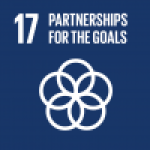Climate change brings with it serious risks to public health, particularly in Asia. While heat waves are expected to increase morbidity and mortality in vulnerable groups, altered rain patterns and water flows will impact crop production and thus increase malnutrition. At the same time, changes in air and water temperatures, as well as increased incidence of extreme events, will affect transmission of infections diseases. Those in low-lying coastal zones and flood plains are particularly at risk.
The problems are exacerbated in Least Developed Countries (LDCs), where adaptive capacity and economic vulnerability limit adequate preparation for the impacts of climate change on health.
This project (2019-2024) supported Bangladesh, Cambodia, Lao PDR, Myanmar, Nepal and Timor-Leste by:
- Strengthening institutional capacity to integrate climate risks and adaptation into health sector planning
- Improving surveillance and/or early warning systems for effective decision-making
- Enhancing health sector service delivery
- Supporting regional cooperation and knowledge sharing to promote up-scaling and replication of best practices; and
- Integrating health into the National Adaptation Plan process
This project was implemented in partnership with the World Health Organization, funded by the GEF-Least Developed Countries Fund.
Key collaborators:- National Governments
- United Nations Development Programme (UNDP)
Implementing agencies and partnering organizations:- United Nations Development Programme (UNDP)
- World Health Organization (WHO)
- Global Environment Facility (GEF)
Funding source:Global Environment Facility - Least Developed Countries Fund
Project dates: 2019 - 2024
Location: Asia and the Pacific
, Bangladesh
, Cambodia
, Lao
, Myanmar
, Nepal
, Timor-Leste
Expected outcomes
The objective of this project is to increase the adaptive capacity of national health systems and institutions, and sub-national level actors, to respond to and manage long-term climate-sensitive health risks in six Asian Least Developed Countries (Bangladesh, Cambodia, Lao PDR, Myanmar, Nepal and Timor-Leste).
In Asia, the least developed countries (LDCs) of Bangladesh, Cambodia, Lao, Myanmar, Nepal, and Timor-Leste, have limited technical capacity of health care systems and personnel to effectively integrate climate-related risks into policy, planning, and regulatory frames, and into interventions to control the burden of climate-sensitive health outcomes.
Existing climate early warning systems managed by national meteorological organizations lack systematic coverage of observational data from regions and areas of the countries with high risks of climate-sensitive health outcomes.
Climate information services are not adequately tailored to the needs of public health professionals.
Primary health care facilities are ill-equipped to prepare for and respond to extreme weather and climate events, lacking information and cost-effective methods and technologies to provide adequate water and sanitiation services during extreme events.
Recognizing these challenges, the National Adaptation Programmes of Action (NAPAs) of the above-mentioned countries prioritize adaptation to the health risks of climate variability and change.
Designed in consultation with stakeholders, this project will increase the adaptive capacity of national health systems and institutions, and sub-level actors, to respond to and manage long-term climate-sensitive health risks, through the following complementary outcomes:
• Outcome 1: Institutional capacities are strengthened to effectively integrate climate risks and adaptation options in health sector planning and implementation
• Outcome 2: Effective decision-making for health interventions is enabled through generation of information and improved surveillance and/or early warning systems
• Outcome 3: Climate resilience is enhanced in health service delivery
• Outcome 4.1: Enhanced regional cooperation and knowledge exchange for promoting scale-up and replication of interventions
• Outcome 4.2: HNAP are effectively integrated into ongoing NAP processes
The regional approach of the project will ensure partnerships across countries are developed and the regional-level systematization of lessons and best practices are documented and assessed to develop technical guidelines, manuals and tool-kits – thereby ensuring that these can be replicated and scaled-up across the region.
The objective of this project is to increase the adaptive capacity of national health systems and institutions, and sub-national level actors, to respond to and manage long-term climate-sensitive health risks in six Asian Least Developed Countries (Bangladesh, Cambodia, Lao PDR, Myanmar, Nepal and Timor-Leste).
This will be achieved through interventions and policy-level actions, under five outcomes. The project will be overseen by UNDP with project components implemented by the World Health Organization and UNDP, in cooperation with Ministries of Health.
Outcome 1: Institutional capacities are strengthened to effectively integrate climate risks and adaptation options in health sector planning and implementation
• 1.1 Integrated health national adaptation plan (H-NAP) is designed/updated to achieve the national health adaptation goals
• 1.2 Standard operating procedures developed for managing climate-sensitive health outcomes
• 1.3 Capacity building to support the implementation of standard operating procedures
Outcome 2: Effective decision-making for health interventions is enabled through generation of information and improved surveillance and/or early warning systems
• Output 2.1 Vulnerability assessment conducted for future health burdens considering development and climate change
• Output 2.2 Integrated surveillance system strengthened of climate-sensitive health outcomes
• Output 2.3 Early warning system and response strengthened
Outcome 3: Climate resilience is enhanced in health service delivery
• Output 3.1 Health care infrastructure strengthened to the impacts of climate change
• Output 3.2 Capacity of health personnel improved to identify and treat to climate-sensitive health issues
• Output 3.3 Climate-sensitive disease control/water programmes strengthened
Outcome 4.1: Enhanced regional cooperation and knowledge exchange for promoting scale-up and replication of interventions
• Activity 4.1.1 Regional experiences synthesized and shared among countries in the region and across different regions;
• Activity 4.1.2 Definition of normative aspects related to climate-resilient health systems by developing regional-level guidelines, manuals, and other relevant technical documents (e.g. climate-resilient health care facilities (CR-HCFs) and climate resilient Water Safety Plans (CR-WSPs), as required by countries;
• Activity 4.1.3 Regional capacity-building events for different topics (on policy, science and implementation of interventions) and conferences;
• Activity 4.1.4 Systematization of regional experiences and promotion of North-South and South-South cooperation and knowledge exchange (which may include virtual communities of practice and platforms)
Outcome 4.2: Health National Adaptation Processes are effectively integrated into ongoing National Adaptation Plan processes
• Activity 4.2.1 Training and technical support for Ministries of Health to conduct economic analyses to inform integration of health into adaptation planning and budgeting.
• Activity 4.2.2 Training and tech support for designing/developing bankable projects to secure public or other finance
Reports and Publications by country teams
Reports and Publications by country teams
The project will be monitored through the following M&E activities:
Project start
A Project Inception Workshop will be held within the first two months of project start after the project document has been signed by all relevant parties.
The inception Workshop addresses a number of key issues including:
• Re-orienting project stakeholders to the project strategy and discussing any changes in the overall context that influence project strategy and implementation;
• Discussing the roles and responsibilities of the project team, including reporting and communication lines and conflict resolution mechanisms;
• Reviewing the project results framework and finalizing the indicators, means of verification and monitoring plan;
• Discussing reporting, monitoring and evaluation roles and finalizing the M&E budget; identifying national/regional institutes to be involved in project-level M&E; discussing the role of the GEF OFP in M&E;
• Updating and reviewing responsibilities for monitoring the various project plans and strategies, including the risk log; knowledge management strategy, and other relevant strategies;
• Reviewing financial reporting procedures and mandatory requirements, and agreeing on the arrangements for audits
• Planing and scheduling Project Board meeting and finalizing first year annual work plan
An Inception Workshop report is a key reference document and must be prepared and shared with participants to formalize various agreements and plans decided during the meeting.
Quarterly reports
Project Progress Reports (PPR) quarterly reports will be assembled based on the information recorded and monitored in the UNDP Enhanced Results Based Management Platform. The risk log will be regularly updated.
Annually reports
An annual Project Implementation Report (PIR) will prepared to monitor progress made since project start, and in particular for the previous reporting period (July to June). The PIR submitted to the GEF will be shared with the Project Board. UNDP-GEF and WHO will coordinate the input of the GEF OFP and other stakeholders to the PIR as appropriate. The quality rating of the previous year’s PIR will be used to inform the preparation of subsequent PIR. Portfolio level indicators (i.e. GEF focal area tracking tools) are used by most focal areas on an annual basis as well.
Periodic Monitoring through site visits will be conducted, based on the agreed schedule in the Project Inception Report and Annual Work Plan to assess first-hand project progress. A Field Visit Report/BTOR will be prepared and circulated no less than one month after the visit to the project team and Project Board members.
Mid-term evaluation of project cycle
An independent Mid-Term Evaluation of the project will be conducted after completion of the first two years. The Mid-Term Evaluation will determine progress being made toward the achievement of outcomes and will identify course correction if needed. It will focus on the effectiveness, efficiency and timeliness of project implementation; will highlight issues requiring decisions and actions; and will present initial lessons learned about project design, implementation and management. Findings of this review will be incorporated as recommendations for enhanced implementation during the final half of the project’s term.
End of project evaluation
An independent terminal evaluation (TE) will take place upon completion of all major project ouputs and activities. The terminal evaluation process will begin three months before operational closure of the project allowing the evaluation mission to proceed while the project team to reach conclusions on key aspects such as project sustainability. The project manager will remain on contract until the TE report and management response have been finalized. The terms of reference, the evaluation process and the final TE report will follow the standard templates and guidance prepared by UNDP IEO for GEF-financed projects available at the UNDP Evaluation Resource Center. As noted in this guidance, the evaluation will be “independent, impartial and rigorous”. The consultants that will be hired to undertake the assignment will be independent from organizations involved in designing, executing or advising on the project to be evaluated. The GEF Operational Focal Point and other stakeholders will be involved and consulted during the terminal evaluation process. Additional quality assurance support is available from the UNDP-GEF Directorate. The final TE report will be cleared by the UNDP-GEF Regional Technical Advisor, and will be approved by the Project Board. The TE report will be publicly available in English and the corresponding management response to the UNDP Evaluation Resource Centre (ERC). Once uploaded to the ERC, the UNDP IEO will undertake a quality assessment and validate the findings and ratings in the TE report, and rate the quality of the TE report. The UNDP IEO assessment report will be sent to the GEF IEO along with the project terminal evaluation report.
Project Terminal Report
The project’s terminal PIR along with the terminal evaluation (TE) report and corresponding management response will serve as the final project report package. The final project report package shall be discussed with the Project Board during an end-of-project review meeting to discuss lessons learned and opportunities for scaling up.
Learning and knowledge sharing
Results from the project will be disseminated within and beyond the project intervention zone through existing information sharing networks and forums. The project will identify and participate, as relevant and appropriate, in scientific, policy-based and/or any other networks, which may be of benefit to project. The project will identify, analyze, and share lessons learned that might be beneficial in the design and implementation of similar future projects and disseminate these lessons widely. There will be continuous information exchange between this project and other projects of similar focus in the same countries, region and globally.
A detailed plan for disseminating results will be developed within the first 2 months of project implementation, in consultation with relevant parties including the project management unit of UNDP’s Adaptation Learning Mechanism.
There will be a two-way flow of information between this project and other projects of a similar focus. This will be supported by knowledge management activities in Outcome 4.1, including the development and sharing of case studies, national and regional seminars/workshops and exchange visits, and information exchange via a project website and national/regional level workshops.
Auditing
The project will be audited according to UNDP Financial Regulations and Rules and applicable audit policies for agency-implemented projects.








